The first section till you get to Rome is just a recap from the Daniel 11 Greece study.
Daniel 11:14 "And in those times there shall many stand up against the king of the south: also the robbers of thy people shall exalt themselves to establish the vision; but they shall fall."
Those that stand up against the boy king Ptolemy V are:
1. Agathocles and Sosibius who tries to take over with the inclusion of killing Arsinoe.
2. Antiochus who joins with Philip V of Macedon with an agreement to take their neighboring territories.
3. Scopas the Aetolian, (General of Ptolemy who recaptured Judea and pushed back Antiochus) tried later in Egypt to overthrow the Government but Aristomenes had him arrested and tried by the Council.
4. The natives of Egypt and Judea were also revolting.
Satan uses many to steel from the flock of Jesus as seen in John 10:11-12
Robbers of thy people is rome?
Rome is the robbers of thy people (Daniel's people Judah) who shall exalt themselves to establish the vision.
1. It will be the forth kingdom as Daniel has seen in vision.
2. Christ will come during this time to save man as the prophets have foretold.
3. Rome with Constantine and the Roman Catholic Church will come against God's people and rob them from Him.
Robbers of thy people is a general meaning that all these nations are having a bad influence on Israel?
1. This is around the middle of the 70 week probation of Daneil 9.
2. The period which the Bible is most silent on concerning Israel.
3. Probation was not going well and apostasy led God to have Palestine crisscrossed with repeated military campaigns between the kings of the north and the kings of the south.
4 During the reign of Antiochus III, the Jewish religion was nearly exterminated.
But they shall fall:
In the coming verses you will see the word But used allot. It is offten used like it is here, the statement is that they will establish the vision But so that God's people and Daniel understands, this power will fall.
As Babylon would come and rob God's people destroying the temple so did Rome later.
I see much of the prophecy of Ezekiel 7 about Babylon as I do Rome coming to rob Gods people which again is seen in verse 22.
Daniel 11:15 "So the king of the north shall come, and cast up a mount, and take the most fenced cities: and the arms of the south shall not withstand, neither his chosen people, neither shall there be any strength to withstand."
So Antiochus comes back in the The Battle of Panion and recaptures Palestine and Coele-Syria from Scopas the Aetolian.
With Ptolemy's kingdom crumbling a marriage was then arranged beween Ptolemy V and Cleopatra as part of a peace treaty.
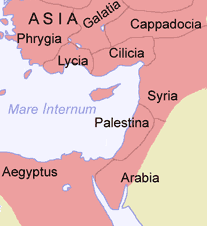
Note - this quote form here.
"It wasn't long before Antiochus IV (Epiphanies - 175-164 B.C.) ruled Syria (king of north).
In a spirit of deep anger he organized an expedition against Jerusalem. He wanted to destroy the Jews and exterminate all worship of their God. From keeping the seventh-day Sabbath to any Jew who refused to worship his idols, death was imminent. The temple was desecrated by sacrificing and worshiping a pig within its precincts. All these were reminders to God's people that their covenant with Him was being desecrated and their probation time was being squandered. The Jews had been at peace with the Ptolomies. During Ptolomy IV's reign they had translated the Torah from Hebrew into Greek for the royal library at Alexandria. This was called the Septuagint translation.
Of intense providential warning, Antiochus IV murdered any infant found circumcised and its mother - because that symbolized that they were to be a covenant-keeping people. Alas, it was only outward show. Their hearts were far from God."
Daniel 11:16 "But he that cometh against him shall do according to his own will, and none shall stand before him: and he shall stand in the glorious land, which by his hand shall be consumed."
Antiochus III now had control over much of Asion Minor down into Egypt.
But Rome after wars with Pyrrhus of Epirus and Hannibal has now become as Daniel 8:9 says "exceeding great".
Rome would do according to his own will with 53,000 loses for Antiochus and only 400 for Rome in the Battle of Magnesia.
Later Rome comes against Antiochus IV in the Battle of Pydna.
None would be able to stand before Rome as Spain to the west is also being taken under it's control.
Jerusalem is besieged and conquered by Pompey the Great as Rome then stands in the glorious land.
Rome
Daniel 11:16 "But he that cometh against him shall do according to his own will, and none shall stand before him: and he shall stand in the glorious land, which by his hand shall be consumed."
I believe this is the starting point going into Rome.
The glorious land is the Jews land or Judea.
Rome consumed the whole land not just parts of it.
No one was able to stand before Rome.
And did according to his own will.
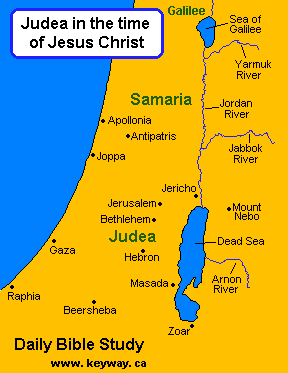
Daniel 11:17 "
He
Rome
shall also set his face to enter with the strength of his
Greece's
whole kingdom, and the upright ones
God's people the Jews
with him
Rome
;thus shall he
Rome
do:
and he
Rome
will give him
the upright ones or the Jews
the daughter of women,
false system of worship.
corrupting her
God's people the jews:
but she
God's people
shall not stand on his
Rome's
side, neither be for him
Rome.
The daughter of women in most cases will be one of the many Cleopatra's.
The phrase used here, I believe points to more than just one person.
We see TWO Woman here in this verse:
1. Daughter of Women:
The phrase "Daughter of" is used many times in the Bible and simply means a group that the people are part of.
I believe the phrase daughter of women used here is the harlot women you see in Revelation 17:4-6.
2. Corrupting Her:
Israel is the church of God's people seen in Revelation 14:4.
So when God talks about his church or people we see the term "Her".
The "daughter of women" is the one doing the corrupting.
Already God is letting us know that this Roman power would be the one to mix in paganism with christianity through people proclaiming to be Christians.
Come out of her, my people, that ye be not partakers of her sins, and that ye receive not of her plagues. (Revelation 18:4)
Also take note of the word But used here.
The same way it was used in Daniel 11:14 to say the robbers of thy people will fall.
There will be a corrupting power giving the people of God a false worship But God's people shall not stand on his side, neither be for him.
Daniel 11:18 "After this shall he turn his face unto the isles, and shall take many: but a prince for his own behalf shall cause the reproach offered by him to cease; without his own reproach he shall cause it to turn upon him."
Daniel 11:19 "Then he shall turn his face toward the fort of his own land: but he shall stumble and fall, and not be found."
I'm going to stay with the popular view here.
Note - this quote is form here.
"He, Julius Caesar conquered many islands along the north coast of Africa, Asia Minor and invaded Great Britain twice. In his final military exploits to expand the empire into Europe, Julius embarked on brilliant campaigns, conquering northern France, Belgium and Southern Great Britain, subjugating the Celts. Pompey, who had been a loyal general (prince) had remained at Rome during the European campaign. He turned the Senate against Julius (the prince who was originally part of "his own behalf" brought "reproach" on him [contextual meaning]). There is dispute among translators as to how this part of the verse should be worded. It appears as though the prince will bring reproach against him, but the reproach will be turned against the prince. That would describe what occurred with Pompey. They declared Julius an enemy of the state. They ordered Julius to turn over his lands and generalship. Julius Caesar attacked. Now General Pompey was on the opposite side. In 48 B.C. Pompey was defeated where he had retreated to - Pharsalus, Greece. Julius Caesar then turned "his face toward the fort of his own land". By 46 B.C. the Roman Senate appointed him dictator for life. Brutus, his adopted son, and his friend Cassius, plotted and killed Caesar in 44 B.C. - "he shall stumble and fall, and not be found."
Julius Caesar Pompey
Here is another thought I had.
But no I don't think it applies.
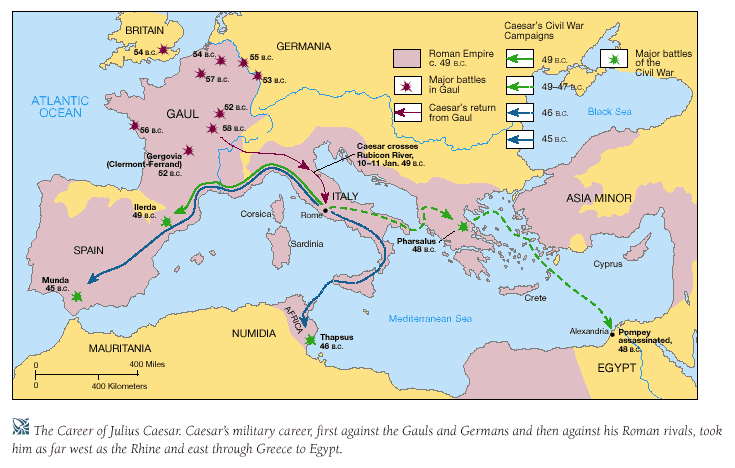
Daniel 11:20 "Then shall stand up in his estate a raiser of taxes in the glory of the kingdom: but within few days he shall be destroyed, neither in anger, nor in battle."
In Luke 2:1-3 you can see who did the taxing.
A quick look at tax history you will find Caesar Augustus listed as one of the most brilliant tax strategist of the Roman Empire.
The glory of the kingdom or should I say The Glory of Rome? Avantasia - Glory Of Rome
The glory of the kingdom of Rome was near it's peak about this time.
The first Map below is about 14 AD at the time of Caesar Agustus, The second is 116 AD when Rome reached it's largest extent.

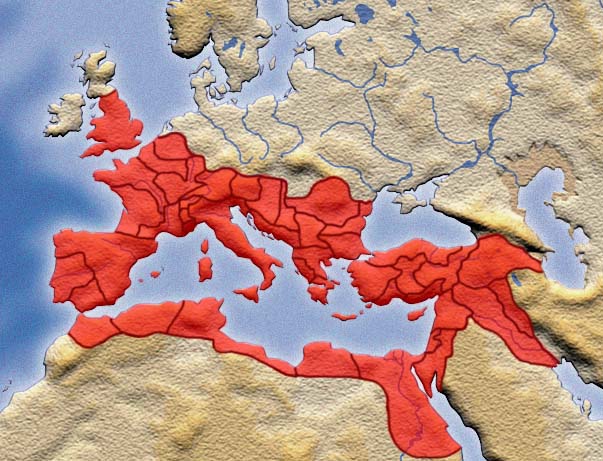
He shall be destroyed, neither in anger, nor in battle?
A quote from this page says it well.
August left Rome. He took a vacation in his old age and health. On the 19th of August, after a short sickness, he "passed away peacefully, not feeling any pain". While traveling in Campania, Augustus died "in a few days", neither "in anger" at an assassin's hands nor "in warfare", but after a short illness.
Daniel 11:21 "And in his estate shall stand up a vile person, to whom they shall not give the honour of the kingdom: but he shall come in peaceably, and obtain the kingdom by flatteries."
The next Roman Emperor on the secene was Tiberius Caesar Augustus.
He did not wish the position but Rome needed a head.
He came into power with no opposition or peaceably by the senate flattering him to take it.
Vile person also means to be vile, despicable, or worthless.
Pliny the Elder called him tristissimus hominum, "the gloomiest of men"
This quote is from the Wikipedia showing how others thought of him as a ruler.
Tiberius's downfall was not his abuse of power but his refusal to use it. His withdrawn nature, especially in comparison with Augustus's openness, immediately made him a disliked figure. The Senate had been functioning under the directorship of the Principate for almost 50 years; most Senators had gained their position and hoped to advance further by courting Imperial favor. Tiberius's attempt to restore some share of administration to the Senate thus met with failure; the Senate no longer knew how to rule independent of the Princeps. Tiberius seemed uninterested in the role set for him to play, and his rule and his reputation suffered. The administration of the Imperial sector of the government increased during this time, but how much this is due to direct action by Tiberius rather than his freedmen advisors cannot be determined. In the end, Tiberius perhaps is a model of how power can be abused by its lack of use.
Daniel 11:22 "And with the arms of a flood shall they be overflown from before him, and shall be broken; yea, also the prince of the covenant."
So who are the "they" that are to be overflown?
What group did we see in plural previously?
We have to go all the way back to verse 17 to find that the they are the "upright ones" or God's people the Jews.
The "him" is Rome and the prince of the covenant is Jesus.
The verse again rewrote:
Daniel 11:22 And with the arms of a flood
God's people the Jews
shall be overflown from before
Rome ,
and shall be broken; yea, also the prince of the covenant
Jesus who Rome crucifies on the cross.
This verse tells allot as to where we are in the flow of time.
Compare this verse with Daniel 9:26
And after threescore and two weeks shall Messiah be cut off, but not for himself: and the people of the prince that shall come shall destroy the city and the sanctuary; and the end thereof shall be with a flood, and unto the end of the war desolations are determined.
- Something about a flood is coming
- Daniel 11 uses they will be overflown, Daniel 9 says desolations are determined
- Daniel 11 says "the prince of the covenant will be broken" Daniel 9 says "Messiah will be cut off"
Similarities in these verses:
Daniel 9 gets more to the point of the events taking place and also says this...
"that shall come shall destroy the city and the sanctuary"
The flood of events came rapid in crucifying Christ and later the destruction of the temple in 70 Ad.
The Roman army overflowed Jerusalem and it's temple ending the promise to literal Israel leaving them and their nation desolate.
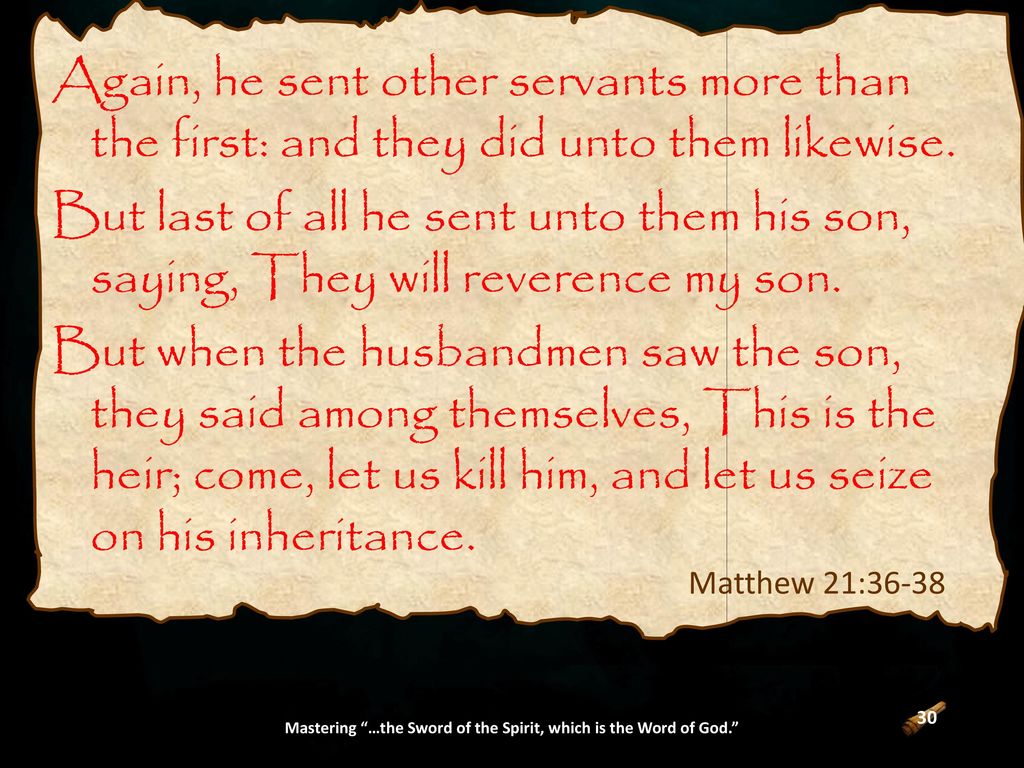

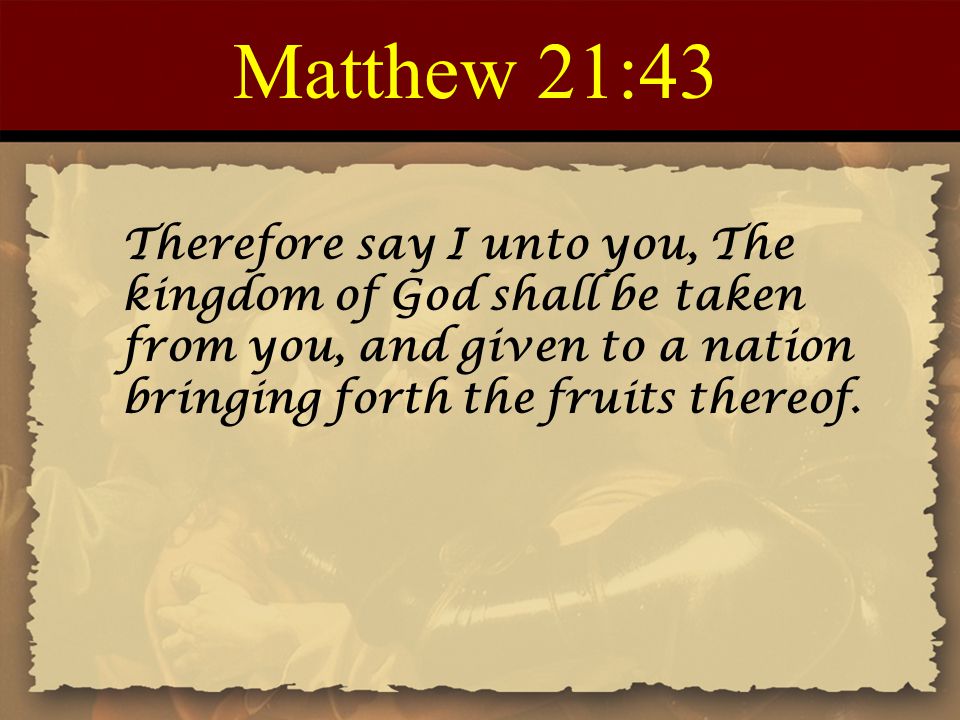
As a people the Jews had failed of fulfilling God's purpose, and the vineyard was taken from them. The privileges they had abused, the work they had slighted, was entrusted to others. {COL 296.1}